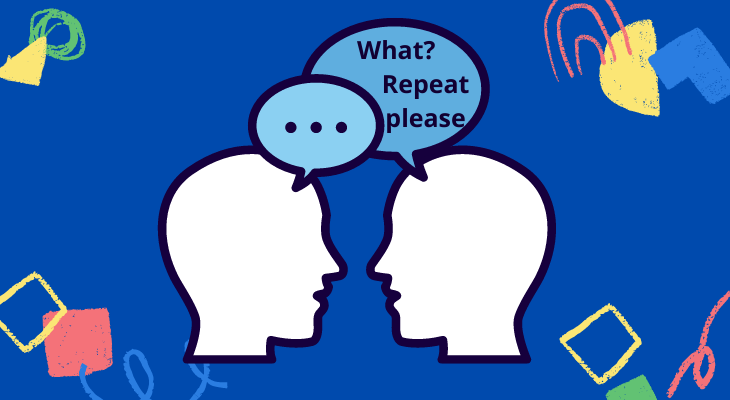【Top 10】日本人がよく誤って発音する単語
PS English では、単語レベルの発音は、フレーズ全体レベルでの発音と比べ、重要性が低いと考える傾向があります。誤った強勢やアクセントの付け方、否定形のリズムや特有なイントネーションの置き方の方が、個々の単語を誤って発音するよりも、誤解を招くことが多いからです。
とは言え、私たちの経験から言って、日本人の皆さんはここで挙げる単語に関連した問題を理解することで、自分を聞き手によりよく理解してもらえるような英語を話すことができるようになるのも事実です。今回は、日常頻繁に使われるものの、発音を誤ると「コミュニケーション・ブレイクダウン」につながる恐れのある単語を集めてみました。
ここではネイティブスピーカーのように発音するためのガイダンスを目的としていません。(実際のところ、世界中で様々な英語 – 訛り・アクセント – が話されているため、ネイティブスピーカーのような発音、と一概に言ってしまうことは困難なのです。)
このブログが、皆さんのスピーキング・イングリッシュの《通じやすさ》の向上につながれば、と思います。
1. Japan
The first in the list might be a shocker! Surely not such a key word is mispronounced?! In actual fact, the first word in our list highlights one of the most important aspects of good pronunciation of English for intelligibility: correct stress placement. Many Japanese speakers will stress the first syllable: JApan creating a strong vowel sound /a/ as in “apple”. What we want instead is an unstressed first syllable creating a neutralised weak vowel sound and thus a stronger /a/ vowel on the second syllable:
JePAN
2.forward
The second in the list follows a similar pattern: placing unwanted stress on the second syllable. The second syllable should be unstressed creating the same neutralised weak vowel sound as above. In fact, it should sound similar to the pronunciation of “wood” or “would”, but unstressed.
FORwud
3.Chaos
The third error stems from the pronunciation in katakana English. The first vowel is not the /a/ vowel in “apple”. It is the EI sound in “cake”.
KEIos
4.really / rarely
Context should clarify the distinction but sometimes meaning could be misunderstood as in “I rarely / really like action movies.” The /l/ vs /r/ problem arises here, but primarily, the intelligibility issue is with the first vowel sound.
Really should be pronounced like the word “rear” + -li
REARli
Rarely should be pronounced like the vowel in air: r- + “air” + -li
RAIRli
5.Storage
The intelligibility collapses, again, to due misplacement of stress. The stress should fall on the first syllable, not the second. The vowel of the second syllable becomes a weak “i” vowel as in “ridge”.
STORidge
This error should also allow reflection on another key point: don’t always rely on the spelling – especially of the vowel letters – to guide pronunciation. “age”, in isolation, is pronounced with the EI vowel sound; as an unstressed ending of “storage” it is NOT the same vowel sound, despite the same spelling.

6.Phone
This word is tricky. It’s often a combination of a weakly pronounced /f/ sound, together with an insufficiently rounded /o/ vowel sound that causes problems for English listeners. If the /f/ is too weak, it can sound like “home”.
“photo” has the same consonant /vowel beginning, a word which usually doesn’t cause so many issues for some reason.
FOUN
7.clothes / months
These words often get an extra syllable at the end, when it is not needed, in the attempt to mark the plural, as in CLOZiz and MUNSis. Just remove the “-is” of these pronunciations and you arrive at the correct pronunciation, or thereabouts, depending on the insistence or not of a well-executed /th/ sound.
CLOUZ or more accurately CLOUTHZ
MUNS or more accurately MUNTHS
8. Report
Another misplacement of stress. The stress should fall on the second syllable, not the first. Again, misplacement of stress is more likely to cause intelligibility issues than incorrect execution of individual sounds.
riPORT
9. career
Another “victim” of katakana English. A combination of misplaced syllable stress and vowel execution will cause misunderstanding.
keRI–a
With a correct pronunciation, you arrive at the same pronunciation for “Korea”!
Compare: “career” keRI–a; “carrier” KAria; and “carer” KAIRa
10. Theme
With this word, the default katakana version is often heard. It is quite different to the original English word. It shouldn’t sound like “tema”. Instead:
THI–m
11. wood (Bonus word!)
We said top 10, but well, the first on the list was perhaps surprising, so for a bonus here’s another!
A: “What’s it made of?”
B: “udd”
A: “Huh?!”
The mistake here is to skip the /w/ sound at the beginning and instead jump to the /u/ sound. The lips needed to be pursed first to create the /w/ sound, followed quickly by a /u/ sound produced at the back of the mouth. This quick front-to-back synthesis is perhaps why it’s a difficult word.
WUD
PS Englishでは、ロンドン・イギリスだけでなく、オンラインで世界中に拠点を置く日本人の皆様を対象に、英会話教育を行っています。より自然な英語を話せるように、ネイティブスピーカーの講師がマンツーマンでレッスンを行います。ネイティブのようなナチュラルな英語を話したい!イギリス英語を学びたい!という方は是非こちらから無料コンサルテーションをお申込みください。
一般英語だけでなく、ビジネス英語、IELTS対策、お子様向けレッスンも行っています。また、履歴書や論文などの添削サービスも提供していますので、お気軽にご相談ください。

